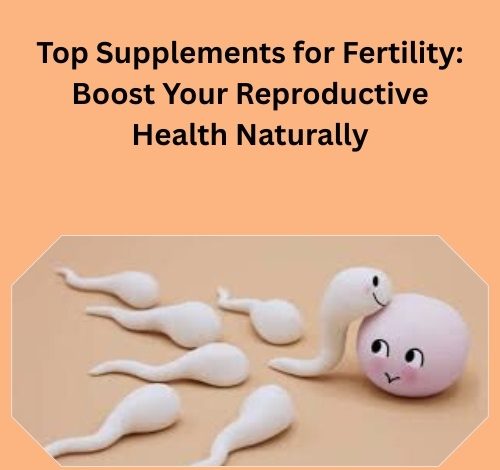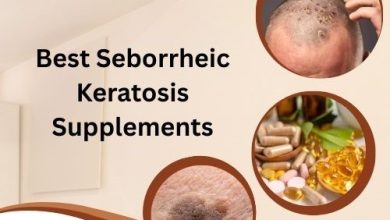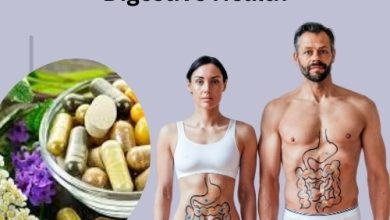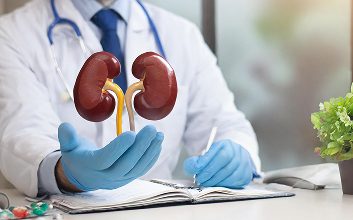Top Supplements for Fertility: Boost Your Reproductive Health Naturally

Fertility is a deeply personal and emotional aspect of life. Whether you’re just beginning your journey to parenthood or have been trying for some time, the desire to conceive can lead many couples to explore various options. Among these, supplements for fertility have gained widespread attention. While medical interventions can be beneficial, many people prefer to begin with a more holistic approach—turning to natural supplements to boost fertility.
This comprehensive guide will walk you through the most effective and research-backed fertility supplements, how they work, who should consider them, and how to incorporate them into your wellness routine. Whether you’re trying to conceive naturally or preparing for assisted reproductive technologies, optimizing your body with the right nutrients is crucial.
Understanding Fertility and Nutritional Gaps
Fertility depends on a delicate balance of hormones, cellular health, immune function, and more. Many environmental and lifestyle factors—like stress, poor diet, toxins, and aging—can negatively impact fertility in both men and women. Nutritional deficiencies, in particular, are a common yet often overlooked contributor to reproductive issues.

That’s where supplements for fertility come in. These products help bridge the gap between your current nutritional state and what your body needs to support conception and a healthy pregnancy. The right natural supplements to boost fertility can improve ovulation, sperm quality, hormone regulation, and even implantation.
Related Article: Infertility Causes, Symptoms, Diagnosis and Treatment
Best Supplements for Female Fertility
1. Folic Acid (Vitamin B9)
Why it matters: Folic acid is a must-have for women trying to conceive. It not only prevents neural tube defects but also supports healthy ovulation and cell division.
Dosage: 400–800 mcg daily
Tip: Look for methylated folate if you have MTHFR gene mutations.
2. Coenzyme Q10 (CoQ10)
Why it matters: CoQ10 is a powerful antioxidant that supports mitochondrial function, crucial for egg quality, especially in women over 35.
Dosage: 100–600 mg daily
Best for: Women with diminished ovarian reserve or age-related fertility decline
Related Article: Acupuncture for Infertility: Is It Safe and Effective?
3. Myo-Inositol
Why it matters: Commonly used for PCOS, myo-inositol improves insulin sensitivity and ovulatory function. It’s one of the most studied natural supplements to boost fertility in women with irregular cycles.
Dosage: 2,000–4,000 mg daily
Benefits: Improves egg quality and reduces testosterone levels
4. Vitamin D
Why it matters: Low vitamin D levels have been linked to poor IVF outcomes, endometriosis, and miscarriage. This fat-soluble vitamin supports hormone balance and immune regulation.
Dosage: 2,000–5,000 IU daily (check blood levels first)
5. Omega-3 Fatty Acids
Why it matters: DHA and EPA are essential for hormone production and reducing inflammation. Omega-3s are also vital for fetal brain development once you conceive.
Dosage: 500–1000 mg DHA/EPA daily
Source: Fish oil, krill oil, or algae-based for vegans
Related Article: Five Genetic Causes of Male Infertility You Should Know
6. Iron
Why it matters: Iron deficiency is linked to anovulation (lack of ovulation). Supplementing iron can improve energy levels and menstrual regularity.
Dosage: 18–27 mg daily
Form: Ferrous bisglycinate is gentler on the stomach
7. Maca Root
Why it matters: An adaptogen that helps balance hormones, reduce stress, and support libido. It has a long history in traditional medicine as a fertility enhancer.
Dosage: 1,500–3,000 mg daily
Note: Choose gelatinized maca for better absorption
Best Supplements for Male Fertility
1. Zinc
Why it matters: Zinc is essential for testosterone production and healthy sperm count. Deficiencies have been directly linked to male infertility.
Dosage: 15–30 mg daily
Tip: Take with food to avoid stomach upset
2. L-Carnitine
Why it matters: This amino acid is critical for sperm motility. Clinical studies show significant improvements in sperm movement and shape after supplementation.
Dosage: 1,000–2,000 mg daily
Related Article: Air pollution harms male fertility while women face similar risk from noise, study finds
3. Selenium
Why it matters: A trace mineral that protects sperm from oxidative damage. It’s also crucial for proper sperm formation.
Dosage: 55–200 mcg daily
Best food source: Brazil nuts (but limit to 1–2 nuts/day)
4. Ashwagandha
Why it matters: This adaptogenic herb has been shown to increase sperm count, motility, and testosterone levels in men experiencing stress-related infertility.
Dosage: 300–600 mg twice daily
Form: KSM-66 or Sensoril for optimal potency
5. Vitamin C
Why it matters: A powerful antioxidant that improves sperm count and motility while reducing DNA fragmentation.
Dosage: 500–1,000 mg daily
Combo tip: Combine with vitamin E for synergistic effects
6. CoQ10
Why it matters: As with women, CoQ10 improves mitochondrial function in sperm and protects against cellular aging.
Dosage: 100–300 mg daily
7. Folate
Why it matters: While commonly associated with female fertility, folate also helps in DNA synthesis and sperm health.
Dosage: 400–800 mcg daily (as methylfolate)
Related Article: COVID-19 reduces male fertility by affecting semen quality and hormone levels
Couples Trying to Conceive: Combined Support
Many brands now offer fertility supplements tailored to couples. These formulas often combine essential supplements for fertility for both partners in convenient daily packets or dual formulations.
Look for couple’s supplements that include:
- Antioxidants (CoQ10, Vitamin C & E)
- Adaptogens (Maca, Ashwagandha)
- Hormone regulators (Vitamin D, Zinc)
- Fertility-specific B-vitamins (Folate, B6, B12)
Are Natural Supplements to Boost Fertility Effective?
Yes—when used correctly and under guidance, natural supplements to boost fertility can offer significant benefits. They are especially effective for:
- Mild hormonal imbalances
- PCOS
- Male factor infertility
- Age-related fertility decline
- Supporting IVF or IUI outcomes
However, supplements are not a substitute for professional medical evaluation. Underlying conditions like endometriosis, thyroid disorders, or structural abnormalities may require clinical intervention.
Key Considerations Before You Supplement
- Check Your Baseline:
Get blood work done to assess deficiencies (vitamin D, iron, B12, etc.). - Choose Quality Brands:
Look for third-party tested, non-GMO, and physician-recommended supplements. - Avoid Megadosing:
More isn’t always better—excessive doses can do more harm than good. - Cycle-Specific Support:
Women may benefit from changing supplements during different phases of the menstrual cycle (e.g., Vitex before ovulation, progesterone boosters after). - Consistency Is Key:
It takes about 90 days for eggs and sperm to mature—so stick with your routine for at least 3–4 months.
Lifestyle Tips to Maximize Supplement Benefits
Taking supplements for fertility is only part of the equation. Enhance their effectiveness by adopting these supportive lifestyle habits:
- Eat Fertility-Friendly Foods: Lean protein, leafy greens, whole grains, seeds, and healthy fats
- Exercise Moderately: Too much or too little can affect hormones
- Manage Stress: Practice yoga, meditation, or breathwork
- Sleep Well: 7–9 hours of quality sleep supports hormone regulation
- Limit Toxins: Avoid BPA, phthalates, and endocrine disruptors in plastics, cosmetics, and cleaning supplies
- Quit Smoking and Excess Alcohol: These have proven negative effects on fertility in both men and women
When to See a Fertility Specialist
If you’ve been trying to conceive for over a year (or 6 months if you’re over 35), it may be time to consult a fertility doctor. Supplements can work in tandem with treatments like IUI or IVF to improve outcomes—but they’re not a replacement for expert care in more serious cases.
Final Thoughts: Nature and Science Working Together
The journey to parenthood can be overwhelming, but you don’t have to walk it blindly. Adding the right supplements for fertility can help restore balance, enhance your body’s natural reproductive processes, and boost your chances of conceiving.
Whether you’re just starting to plan a family or exploring natural alternatives before clinical treatments, these natural supplements to boost fertility offer a safe and often effective place to begin. Always consult your doctor or a fertility nutritionist before starting any new supplement, especially if you’re on medications or managing chronic conditions.




